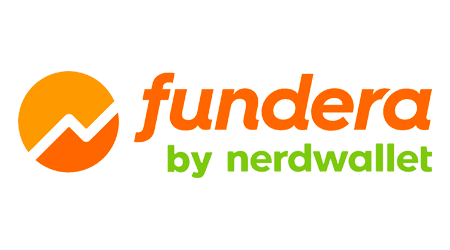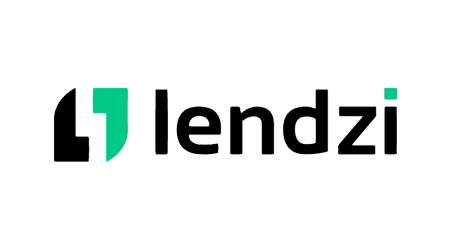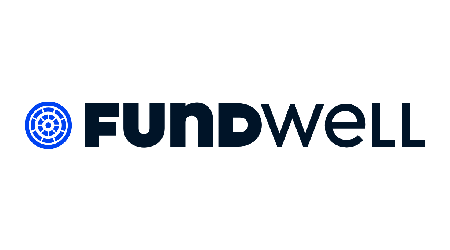Looking for a $300,000 business loan to grow your business? Whether you’re expanding operations, upgrading equipment or covering gaps in cash flow, there are plenty of options available — but qualifying can be a hurdle. Most lenders look for strong revenue, good credit and a few years in business. This guide helps you compare lenders, understand loan types, evaluate qualifications and find the best financing for your business.
Where to get a $300,000 business loan
You have a few solid options for a $300,000 business loan — banks, online lenders and loans backed by the Small Business Administration (SBA). The best fit depends on your business’s needs and financial situation.
- Community and regional banks. These are a great choice for small businesses, especially if you already have a prior banking relationship. They tend to be more flexible and provide personalized service than large institutions.
- Large banks. Big names like Chase also offer loans in this range, but stricter requirements can make it tougher for smaller businesses to qualify. If your business has fewer than 10 employees or lower annual revenue, it may be harder to get approved.
- Online lenders. Some online lenders like Fora Financial and Rapid Finance offer loans of $1 million or more, putting a $300,000 loan within reach. They usually disburse loans quickly and may work with businesses with less-than-perfect credit. However, many online lenders stick to smaller loan amounts or shorter repayment terms, so you’ll need to read the fine print.
Compare $300,000 business loans
To get started, select your annual revenue range, time in business and credit score to see personalized results.
Compare other products
We currently don't have that product, but here are others to consider:
How we picked theseWhat is the Finder Score?
The Finder Score crunches 12+ types of business loans across 35+ lenders. It takes into account the product's interest rate, fees and features, as well as the type of loan eg investor, variable, fixed rate - this gives you a simple score out of 10.
To provide a Score, we compare like-for-like loans. So if you're comparing the best business loans for startups loans, you can see how each business loan stacks up against other business loans with the same borrower type, rate type and repayment type.
How to get a $300,000 business loan
You can apply for a $300,000 business loan by following these general steps. But beware — the application process is usually more intensive for a loan of this size than for financing under $100,000.
- Decide on the type of loan your business needs. Long-term loans and equipment financing are best for investing in long-term growth projects. Short-term loans, lines of credit, inventory financing and business cash advances are best for short-term needs and ongoing projects.
- Compare business loan providers and check your eligibility. This could involve setting up an appointment with a loan officer at a bank. Or use a connection service like Lendio that partners with both bank and online lenders to compare offers quickly.
- Get prequalified. After you’ve made a list of lenders you’re interested in, get a personalized quote from your top choices by doing a prequalification. Prequalification allows you to compare rates and terms before applying and doing a hard credit pull.
- Gather all required documents. A $300,000 loan typically requires a government-issued ID, EIN, bank statements from the past few months for the business and owners, tax returns, financial statements and financial projections.
- Apply for the loan. If your lender has an online application, this sometimes only takes a few minutes. But SBA loans typically require multiple forms that can get complicated. It may be worth signing up for a packaging service from a company like SmartBiz.
- Appraise collateral. If required, hire a professional to appraise your collateral. While standard for real estate loans, you might also need to take this step for an equipment loan or if you are financing inventory.
- Sign your loan offer. If approved, read your loan offer carefully before signing, noting the interest rate, fees, repayment terms and due dates.
How to qualify
To qualify for a $300,000 business loan, you’ll need to meet specific requirements that vary by lender. Here are some common qualifications most lenders look for:
- Time in business. At least two to three years in business is often required for this loan amount.
- Credit score. A personal credit score of 620 or higher is usually needed, though higher scores improve your chances of approval and a shot at better rates and terms.
- Annual revenue. Many lenders expect your business to generate at least $1 million in annual revenue to support the loan.
- Profitability. Your business needs to show consistent cash flow or profits to cover monthly payments.
- Collateral. Some lenders may require collateral, such as real estate, equipment or other valuable assets, for a loan of this size.
How much a $300,000 loan costs
How much a $300,000 loan costs depends on the rates, fees and loan terms your lender offers.
Suppose your business took out a $300,000 loan at an 8% APR and a seven-year term. The loan would cost your business around $4,676 each month and about $92,772 in interest after you’ve fully paid off the loan.
See how much a $300,000 business loan costs at other rates and terms by using our business loan calculator.
Business loan calculator
Calculate how much a $300,000 business loan will cost.|
Your loan
|
|---|
| Loan amount |
|
$
|
| Loan terms (in years) |
|
|
| Interest rate |
|
%
|
Fill out the form and click on “Calculate” to see your estimated monthly payment.
or
Compare business loansBased on your loan terms
| Principal | $ |
|---|---|
| Interest | $ |
| Total Cost | $ |
8 types of $300,000 business loans
Businesses seeking a $300,000 loan can choose from a variety of financing options, each designed for specific needs and situations. Below are the most common types of loans, their uses and who they’re best suited for.
1. Short-Term Loans
Short-term loans provide a lump sum with repayment terms typically ranging from three to 18 months. These loans are usually unsecured and come with higher interest rates but faster approval processes.
Good for:
- Businesses that need quick cash to handle unexpected expenses.
- Companies looking to bridge temporary cash flow gaps.
Consider other options if:
- You need long-term financing for growth projects.
- You want lower interest rates or longer repayment terms
2. Business Term Loans
Business term loans offer a fixed loan amount with repayment terms ranging from one to 10 years. These loans may be secured or unsecured, depending on the lender.
Good for:
- Established businesses seeking funds for growth or expansion.
- Companies with steady revenue and strong credit history.
Consider other options if:
- Your business is new and lacks a credit history.
- You can’t meet the lender’s collateral or cash flow requirements.
3. Business Lines of Credit
A business line of credit provides revolving access to funds up to a certain limit. You only pay interest on the amount you draw.
Good for:
- Businesses with ongoing expenses or unpredictable cash flow needs.
- Companies looking for flexibility in funding.
Consider other options if:
- You need a lump sum for a large, one-time investment.
- You have difficulty qualifying due to credit or revenue requirements.
4. SBA Loans
The Small Business Administration (SBA) offers loans backed by the government, making them more accessible for small businesses. SBA loans typically have low interest rates and long repayment terms.
Good for:
- Established businesses with strong financials but limited access to traditional bank loans.
- Companies that need affordable long-term financing.
Consider other options if:
- You need funding quickly; SBA loans can take weeks to months to process.
- Your credit score is below 620 or your revenue doesn’t meet SBA standard.
5. Equipment Financing
Equipment financing is a type of secured loan specifically used to purchase machinery, vehicles or other equipment. The equipment itself serves as collateral.
Good for:
- Businesses looking to acquire or upgrade essential equipment.
- Companies that prefer to preserve working capital by financing large purchases.
Consider other options if:
- You need funds for non-equipment-related expenses.
- Your equipment depreciates quickly or has limited resale value.
6. Accounts receivable financing
Accounts receivable financing (also known as invoice factoring) allows businesses to borrow against unpaid invoices. The loan amount is tied to the value of your receivables.
Good for:
- Businesses with high-value unpaid invoices.
- Companies looking to improve cash flow without waiting for client payments.
Consider other options if:
- Your clients have poor payment histories or unreliable creditworthiness.
- You don’t have a steady flow of receivables.
7. Startup Loans
Startup loans provide funding for new businesses with limited operating history. These loans often require strong personal credit and a solid business plan.
Good for:
- Entrepreneurs launching new ventures who have a strong personal credit score but limited business credit history.
- Startups needing initial working capital.
Consider other options if:
- Your business has been operating for several years and qualifies for traditional financing.
- You don’t have a strong personal credit score or collateral to secure the loan.
8. Business Credit Cards
A business credit card acts as a revolving line of credit for smaller expenses. It’s not typically suited for large-scale funding but can complement other financing options.
Good for:
- Managing day-to-day expenses like supplies or travel.
- Businesses looking to build credit or earn rewards.
Consider other options if:
- You need $300,000 in one lump sum.
- You can’t keep up with high-interest payments on revolving debt.
Secured vs. unsecured business loans for $300,000
Business loans can either be secured or unsecured. A secured loan is backed by collateral from your business — like real estate, equipment or other valuable assets. An unsecured loan is based on your creditworthiness and doesn’t require collateral. But with an unsecured loan, you’ll likely need to provide a personal guarantee.
How to get a $300,000 business loan with bad credit.
Getting a $300,000 business loan with bad credit can be tough, but it’s not impossible. Lenders may be willing to overlook your credit score if your business has strong revenue, steady cash flow or valuable collateral. Secured loans backed by assets like real estate or equipment are often a good option if you have back credit since they reduce the lender’s risk.
You can also explore alternative financing options like invoice factoring or merchant cash advances, which rely more on your business’s performance than your credit score. While these options tend to cost more, they can be a lifeline if you need funding and don’t qualify for traditional loans.
How to get a low APR on a $300,000 business loan
Getting a lower APR on a $300,000 loan can save your business a lot in interest. Here are a few steps you can take to secure the best rates:
- Improve your personal and business credit scores before applying
- Offer collateral to make your loan less risky for the lender
- Shop around and compare several offers
- Strengthen your business’s financials, including cash flow and revenue
- Choose shorter repayment terms, which often come with lower APRs
Bottom line
A $300,000 business loan can open up exciting opportunities for your business, but finding the right lender is key. Take some time to compare the best business loans, prequalify if you can and then choose a loan that matches your business goals.
Frequently asked questions
Can I get an unsecured $300,000 business loan?
It’s possible to get an unsecured $300,000 business loan, especially if you apply with an online lender. However, most lenders prefer to collateralize $300,000 loans because they stand to take a sizable loss if your business defaults. And even then, most unsecured loans require a personal guarantee from all business owners with a 20% stake in the company.
How hard is it to get a $300,000 business loan?
Getting a $300,000 business loan can be challenging, especially if your credit, revenue or time in business doesn’t meet lender requirements. But if your business has been in business for a while with strong financials, it’s definitely within reach.
Can I get a $300,000 business loan to start a business?
Yes, you may be able to get a $300,000 business loan to start a business, but it’s more difficult than getting a loan for an established business. For startup loans, lenders typically require a strong personal credit score, a detailed business plan and collateral to offset the risk of lending to a new business.
Can I get a $300,000 SBA loan?
Yes, it is possible to get a $300,000 SBA loan. You’ll typically need a credit score of at least 620, strong revenue (often between $1 million and $3 million) and at least three years in business to qualify.
Which SBA programs offer $300,000 loans?
Most SBA programs offer $300,000 loans, including:
- SBA 7(a) loans. General-purpose term loans for various business needs.
- SBA Express loans. Faster approval but may require collateral up to $150,000.
- SBA CAPLines. Lines of credit for working capital or seasonal expenses.
- SBA CDC/504 loans. Designed for real estate or equipment purchases.
Other business loan amounts:
Ask a question
More guides on Finder
-
8 Best Commercial Truck Loans (2026)
Best financing options for trucking companies to cover licensing, new trucks, insurance, vehicle maintenance and more.
-
Can You Get a Business Loan With a Cosigner? (2026)
Think you need a cosigner for your business loan? Learn when they help — and when they don’t.
-
Fundera Review: Fast Funding Up to $5M for Small Businesses (2026)
Get connected with short-term funding, SBA loans, lines of credit and more.
-
Best Business Loans with No Personal Guarantee (2026)
Business loans that don’t require a personal guarantee, including options for comparing multiple lenders and specific loan types.
-
$50K No-Doc Business Loans: Fast Funding, Apply Today (2026)
Compare $50,000 no-doc business loans for an expedited lending process.
-
How to Get a $400,000 Business Loan in 2026
Compare different lenders to secure a $400,000 business loan with favorable terms.
-
How to Get a $10 Million Business Loan in 2026
Buy real estate, another business or expand your enterprise.
-
How to Get a $3 Million Business Loan in 2026
You’ll have an easier time qualifying if you have strong credit and high revenue.
-
How to Get a $5 Million Business Loan in 2026
Find financing to grow your business — or even buy another.
-
Compare $10,000 Business Loans in 2026
Stay away from big banks for a loan of this size.





